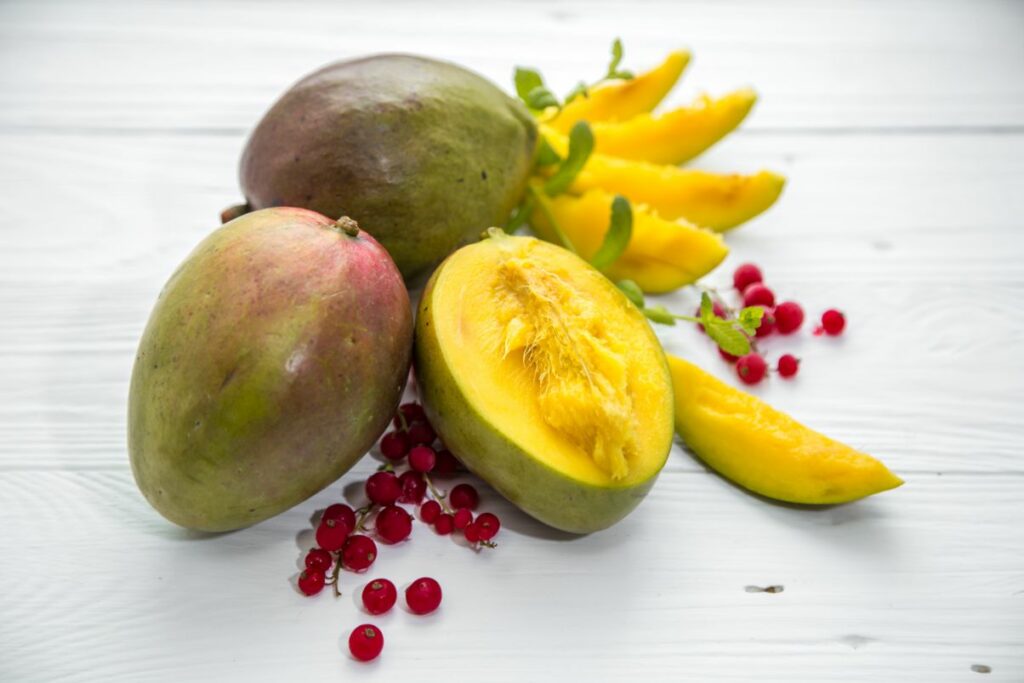If you are a pet rat owner, then you must always be on the lookout for new treats and snacks for your furry friends. Feeding your rats is one of the most enjoyable parts of being a rat owner because they can eat such a wide range of different foods.
Mangoes are a delicious fruit that you may have in your fruit basket, and you may be wondering whether it is safe for your rats to eat.
In this blog post, we will discuss whether pet rats can eat mango and everything else you need to know about feeding mango to your rats.

Nutritional Value of Mango
Mangoes are a good source of vitamins and minerals that are essential for your pet’s health. Some of the nutrients found in mango include:
What are the Nutrients Found in Mango?
- Vitamin C: Mangoes are an excellent source of Vitamin C, which is vital for maintaining a healthy immune system.
- Vitamin A: Mangoes are also rich in Vitamin A, which helps to maintain healthy skin and eyesight.
- Potassium: Mangoes contain potassium, which is essential for maintaining healthy blood pressure and heart function.
- Fiber: Mangoes are a good source of dietary fiber, which is essential for maintaining healthy digestion.
How is Mango Beneficial for Rats?
Mangoes are a healthy addition to your pet rat’s diet. They are rich in nutrients that can help to maintain a healthy immune system, digestion, and heart function.
Mangoes can also provide your rats with a tasty treat that they will enjoy.
Potential Risks of Feeding Mango to Rats
While mangoes are generally considered safe for rats to eat, there are some potential risks that you should be aware of.
What are the Risks of Feeding Mango to Rats?
- High sugar content: Mangoes are high in sugar, and feeding your rats too much mango can lead to obesity and other health issues.
- Digestive problems: Rats have delicate digestive systems, and feeding them too much mango can cause diarrhea, vomiting, and other digestive problems.
- Choking hazard: Mangoes have a hard pit in the center that can be a choking hazard for your rats.
D-limonene
In high quantities, D-limonene, a compound found in a variety of fruits, including mangoes, can be harmful to pet rats.
It can cause kidney issues in males. However, there’s a very interesting article by rachiesratirementhome that goes over why the fear is a bit overblown.
Sure, D-limonene can cause issues in male rats, but only in extremely high quantities. In small quantities it’s not a big threat. Nevertheless, if you’re still worried it might be best to give your male rats a different treat.
How to Minimize Risks When Feeding Mango to Rats?
To minimize the risks of feeding mango to your rats, you should:
- Feed your rats small amounts of mango as a treat, not as a regular part of their diet.
- Remove the pit from the mango and cut it into small pieces to prevent your rats from choking.
- Monitor your rats for any signs of digestive problems, and stop feeding them mango if they experience any issues.
How to Feed Mango to Rats?
If you decide to feed your rats mango, there are a few things to keep in mind.
How to Prepare Mango for Rats?
To prepare mango for your rats, you should:
- Wash the mango thoroughly to remove any dirt or pesticides.
- Remove the pit from the mango and cut it into small pieces.
- Offer the mango as a treat, not as a regular part of your rat’s diet.
How Much Mango Can Rats Consume?
Rats should only be fed small amounts of mango as a treat, not as a regular part of their diet. A good rule of thumb is to offer your rats no more than one or two small pieces of mango per week.
Conclusion
In conclusion, mango can be a healthy and delicious treat for your pet rats, but it should be fed in moderation. Mangoes are rich in vitamins and minerals that can help maintain a healthy immune system, digestion, and heart function, but they are also high in sugar and can cause digestive problems if fed in excess.
If you are looking for other fruits to offer your pet rats, you can try apples, bananas, strawberries, and blueberries. Remember to always feed fruits in moderation and monitor your rats for any signs of digestive problems.
- How Long Do American Eskimo Dogs Live? Important Factors and Care Tips - September 29, 2023
- Do American Bulldogs Need Grooming? Essential Tips and Care Guidelines - September 29, 2023
- Do Bengal Cats Enjoy Playing? Essential Tips for Keeping Them Active - September 29, 2023